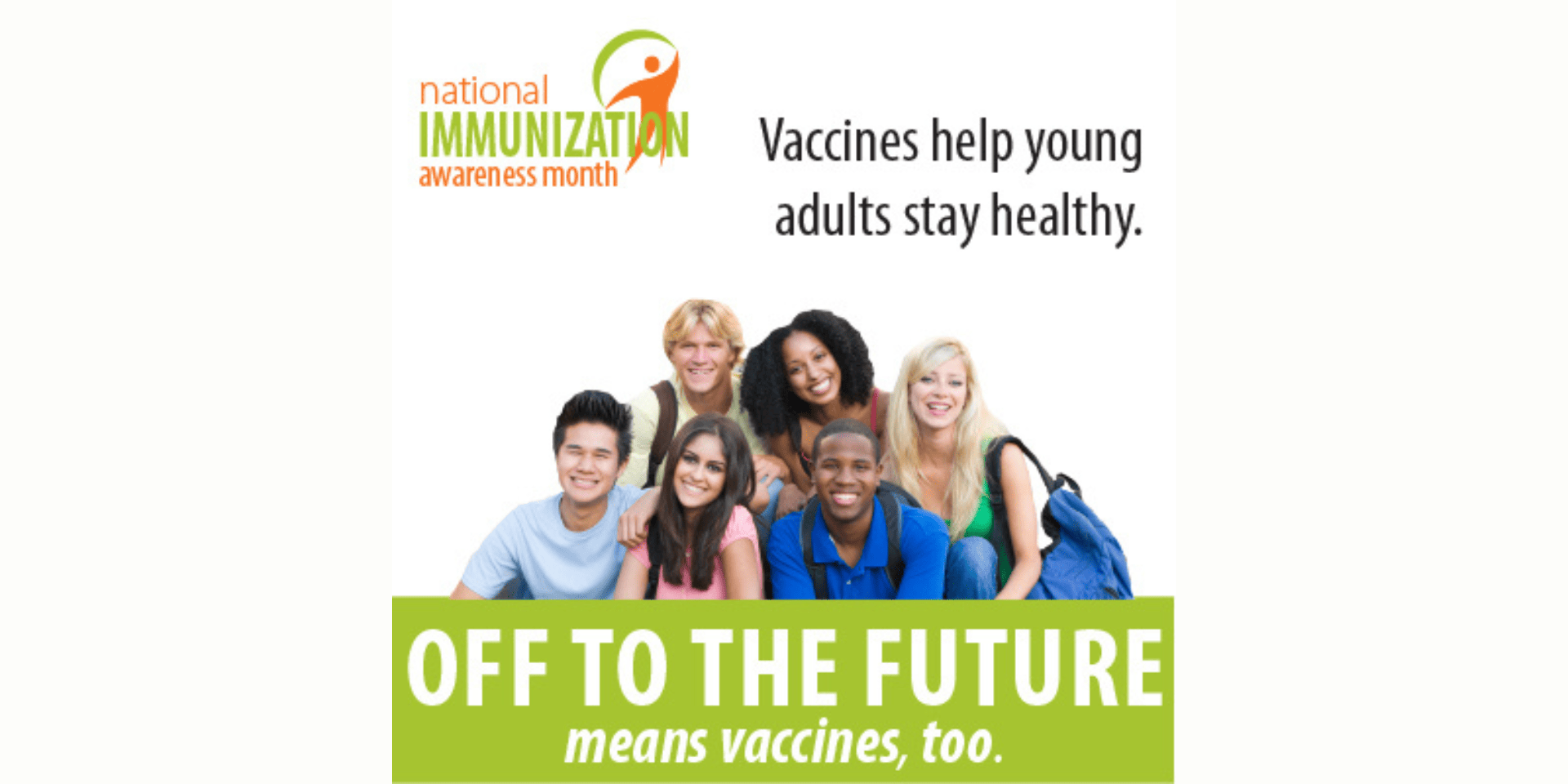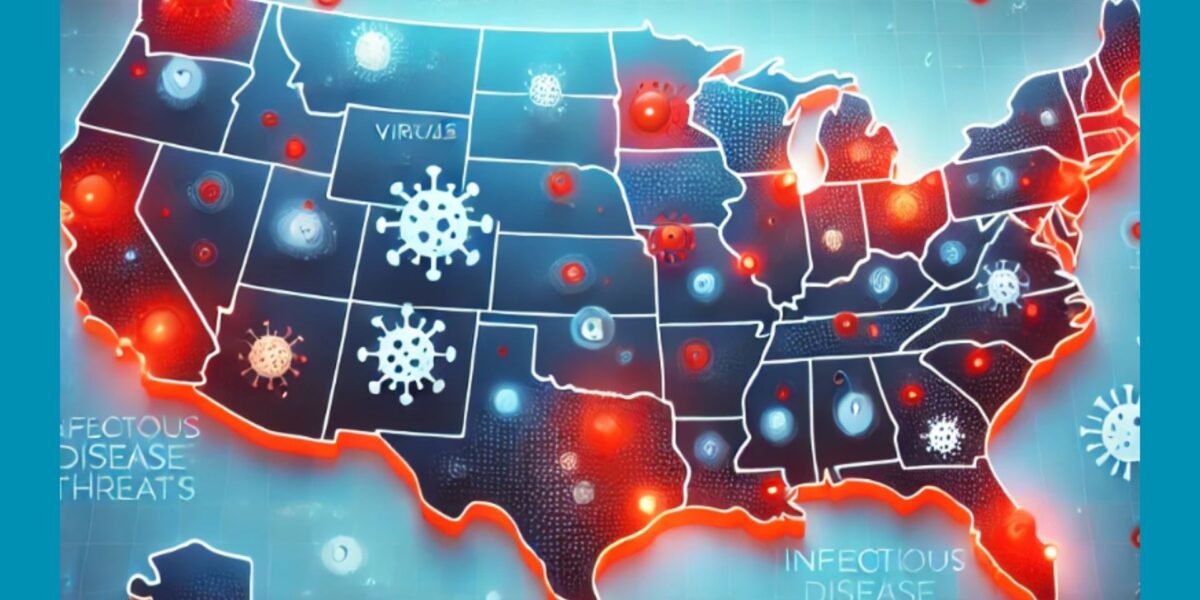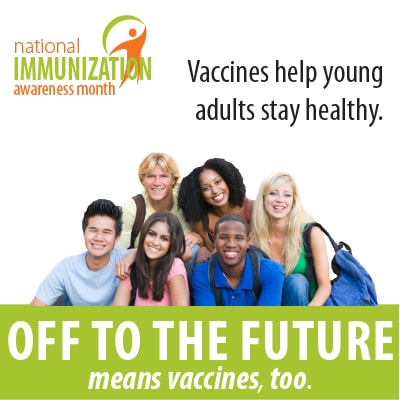
The month of August has been designated as National Immunization Awareness Month. As a partnering organization, the National Foundation for Infectious Diseases (NFID) is helping to promote the importance of immunization in keeping our communities healthy.
Vaccines are not just for children. Immunizations are needed through through all stages of life to help you stay healthy. That’s because immunity from childhood diseases may wear off over time, and you may also be at risk for other vaccine-preventable diseases.
Getting ready for college means making sure you are up-to-date on all doses of the recommended vaccines–to protect yourself and others around you. Because some diseases can spread quickly in settings like college dorms and classrooms, many colleges and universities have vaccination requirements for school entry.
Everyone age 6 months and older should get an influenza vaccine every year. And all adults should get a Tdap [tetanus, diphtheria, and pertussis (or whooping cough)] vaccine once if they did not receive it as an adolescent, followed by a Td (tetanus, diphtheria) booster every 10 years. The HPV vaccine is recommended for boys and girls 11-12 years old. Young women and men who have not started or finished the HPV vaccine series (3 doses) may be vaccinated through age 26. Meningococcal vaccine is recommended for young adults, especially first-year college students who will be living in residence halls.
There may be other vaccines you need depending on factors such as your childhood vaccination history, travel plans, personal health status, and risks. Take the online vaccine quiz to find out which vaccines you may need and learn more at: www.adolescentvaccination.org.
To join the conversation, follow us on Twitter (@nfidvaccines) using the hashtag #NIAM14, like us on Facebook, and join the NFID Linkedin Group.
Related Posts

News Round-Up: Infectious Disease Threats
According to NFID website poll, there are several worrisome infectious disease threats. Read recent news on topics of greatest concern, including avian influenza (bird flu), measles, and respiratory syncytial virus (RSV) …

Vaccines and Heart Health: A Vital Connection
Heart disease can increase the risk of serious or fatal complications from respiratory diseases including COVID-19, flu, and RSV

Harnessing the Power of Local Data
NFID dashboard aims to empower stakeholders with hyperlocal data to increase US adult respiratory vaccine uptake

